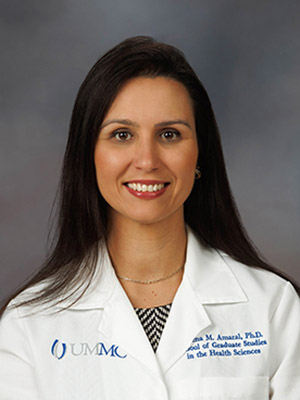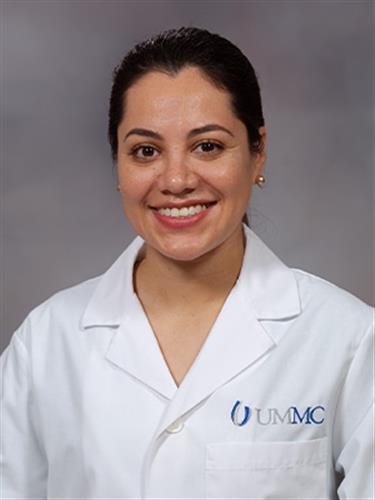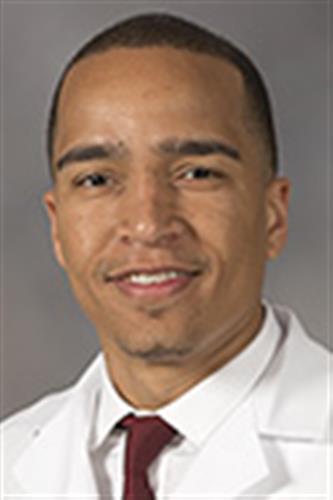Pilot Projects
- Mississippi Center for Clinical and Translational Research Home
- Contact MCCTR
- About Us
- Cores and Programs
- Funding Opportunities
- Training Opportunities
- News and Events
- News Archive
Past Investigators
Pilot Projects Program Alumni
Pradeep Alur, MD
Adjunct Professor
Penn State College of Medicine
Association between Weight for Length and Severity of Bronchopulmonary Dysplasia
April 2019 - October 2022

Lorena Amaral, PhD
Associate Professor, Pharmacology and Toxicology
University of Mississippi Medical Center
Progesterone and PIBF: New Insights for Treatment Options for Preeclampsia
December 2020 - October 2022
Reuben Burch, PhD
Professor, Vice Provost for Research
Texas Christian University
Incorporation of a Smart Sock with the Virtual Immersive Test for Postural Stability
January 2022 - May 2023
Donald "Trey" Clark, MD
Associate Professor, Medicine
University of Mississippi Medical Center
Remote Hypertension Management Using Home Blood Pressure Telemonitoring and a Standardized Treatment Protocol
August 2018 - March 2019

Caroline Compretta, PhD
Associate Professor, Preventive Medicine
Assistant Vice Chancellor for Research
University of Mississippi Medical Center
Mapping Informal and Formal Food Outlets to Address Obesity and Food Insecurity
August 2019 - June 2020
Hannah Copeland, MD
Associate Professor, Surgery
Indiana University School of Medicine
Adipose Tissue Effects on Cardiac Surgery Outcomes (ATECO)
August 2018 - May 2020
William Davis, PhD
Assistant Professor, Agricultural Economics
Mississippi State University
Understanding the Relationship between Broadband Access, Telehealth Utilization, and Population Health: Evidence from Mississippi
January 2022 - May 2023
David R. Dolbow, PhD, DPT, RKT
Assistant Professor, Physical Therapy
William Carey University
Electrically Induced Cycling and Nutritional Counseling for Counteracting Obesity after SCI
May 2017 - June 2019

Brad Dufrene, PhD
Professor, Psychology
University of Southern Mississippi
Mechanisms of change in parenting programs to prevent childhood obesity
January 2018 - February 2020
Vishnu Garla, MD
Assistant Professor, Internal Medicine
University of Mississippi Medical Center
Effect of GLP-1 Receptor Agonists (glp-1) on Trabecular Bone Mineral Density and Visceral Adiposity in Postmenopausal Patients
December 2019 - July 2023

Parvesh Garg, MD
Associate Professor, Neonatology
Wake Forest University School of Medicine
Outcomes Prediction in Neonates with Surgical Necrotizing Enterocolitis Combining Clinical, Histopathological and Genomic Markers
June 2021 - October 2022
Zerelda Esquer Garrigos, MD
Associate Professor, Medicine - Infectious Diseases
University of Mississippi Medical Center
Optimal Timing of Device Removal in Patients with Cardiovascular Implantable Electronic Device Infections: A Multicenter Analysis
August 2021 - January 2023
Maria Gonzalez-Suarez, MD
Nephrologist, Division of Nephrology and Hypertension
Mayo Clinic
AT1R Autoantibodies and the Risk of CVD and Mortality in ESKD
June 2019 - November 2020
Bernadette Grayson, MCR, PhD
Associate Dean, Population Health
University of Mississippi Medical Center
Glucagon-like Peptide 1-mediated Mechanisms of Metabolic Dysfunction after Spinal Cord Injury in Humans
August 2021 - October 2022
Carrie Henderson, MD
Professor, Pediatrics
LSU Health - New Orleans
Structured Family Deliberation for Decisions about Home Ventilation
April 2023 - April 2024

Erin Jackson, MD
Director, Pediatric Hematology
University of Mississippi Medical Center
Obesity in Pediatric Sickle Cell Disease: A New Phenomenon
November 2020 - June 2022
Matthew Jessee, PhD
Associate Professor, Health, Exercise Science and Recreation Management
University of Mississippi - Oxford
Vascular Adaptions to Single-Sprint Training
June 2023 - January 2025
Matthias Krenn, PhD
Associate Professor, Neurosurgery
University of Mississippi Medical Center
Electrical Neuromodulation for Modifying Spinal Network Involved Spasticity
November 2022 - March 2024
 Crystal Lim, PhD
Crystal Lim, PhD
Associate Professor, Health Psychology
University of Missouri
Formative Research to Develop a Pediatric Obesity Primary Care Research Practice Network
August 2020 - August 2022

Stephanie McCoy, PhD, MPH
Director, Kinesiology and Nutrition
University of Southern Mississippi
Physical Activity and Cardiometabolic Health in Children with Autism Spectrum Disorder
November 2019 - October 2020

Nuno Oliveira, PhD
Associate Professor, Kinesiology and Nutrition
University of Southern Mississippi
Visual feedback monitoring during exercise in individuals with obesity
December 2020 - November 2023
Ana Palei, PhD
Associate Professor, Surgery
University of Mississippi Medical Center
Platelet-mediated Mechanisms of Placental and Systemic Hypercoagulability in Pregnancies Complicated by Obesity and Preeclampsia
January 2022 - March 2024
Matthew Priddy, PhD
Associate Professor, Additive Manufacturing Technical Lead (CAVS)
Mississippi State University
Residual Stresses and Bone Remodeling: A Two-Step Simulation Framework for Improved Finite Element Modeling of Dental Implants
October 2022 - July 2024
Meagen Rosenthal, PhD
Associate Professor, Pharmacy Administration
University of Mississippi (Oxford)
Patient Perceptions of and Attitudes toward a Weight Management Program Offered by Community Pharmacies
July 2018 - September 2019
Megan Renna, PhD
Assistant Professor, Department of Psychology
The Ohio State University
Emotion Regulation Training to Reduce Cardiovascular Disease Risk among Depressed Young Adults in Southern Mississippi: A Single-Session Design
August 2022 - December 2023

Kurtis Showmaker, PhD
Systems Analyst
The Jackson Laboratory
Development of the UMMC BioBase
December 2020 - September 2021
Hallie Smith, PhD, BCBA-D, LP
Assistant Professor, Applied Behavior Analysis
Mississippi State University
Increasing Efficiency of Treatment Identification for Pediatric Feeding Problems through the Development of a Rapid Assessment Tool
April 2023 - July 2024
Jonathon Stavres, PhD
Assistant Professor, School of Kinesiology and Nutrition
University of Southern Mississippi
Implications of Exaggerated Metaboreflex Responses in Metabolic Syndrome
August 2024 - July 2025
Michelle Tucci, PhD
Professor, Orthopedic Surgery
University of Mississippi Medical Center
Novel NPY Antagonism for Treatment of Immunporosis
December 2023 - June 2025

Richard Wells, MC, ChB
Assistant Professor, Pulmonary/Critical Care Medicine
LSU Health New Orleans School of Medicine
Prospective Registry Study of Pulmonary Arterial Hypertension and Chronic Thromboembolic Pulmonary Hypertension in Mississippi
December 2020 - June 2024
 Michelle Williams, PhD
Michelle Williams, PhD
Associate Professor, Global and Community Health
George Mason University
Survivor Heart: Improving Cardiovascular Outcomes in Breast Cancer Survivors
April 2019 - July 2020


